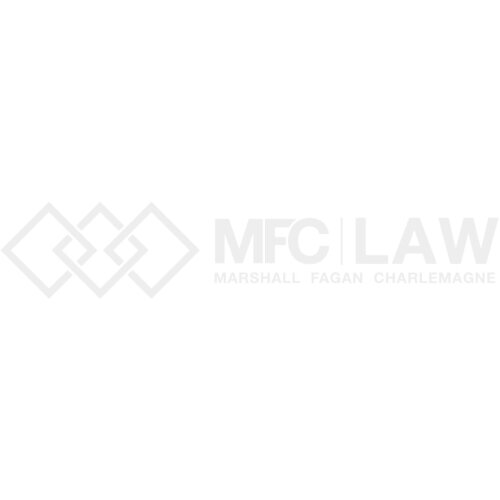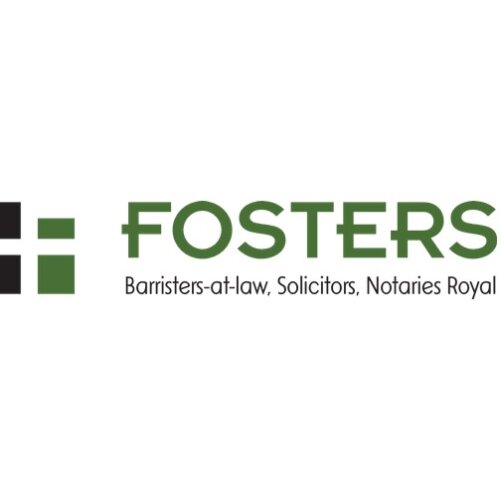Best Mortgage Lawyers in Castries
Share your needs with us, get contacted by law firms.
Free. Takes 2 min.
Free Guide to Hiring a Real Estate Lawyer
List of the best lawyers in Castries, Saint Lucia
About Mortgage Law in Castries, Saint Lucia
Mortgage law in Castries, Saint Lucia, involves the legal framework governing the lending and borrowing of money for the purchase of residential or commercial properties. A mortgage is a legal agreement in which the borrower pledges their property as security for the loan. The lender, often a bank or financial institution, holds an interest in the property until the loan is repaid in full. This arrangement blends real estate and financial law, regulating aspects such as foreclosure procedures, the rights of each party, and terms of repayment. The laws ensure transparency and fairness in transactions and protect both lenders and borrowers against fraud and undue influence.
Why You May Need a Lawyer
There are several scenarios where you might require legal advice on mortgages in Castries, Saint Lucia: - **Obtaining a Mortgage:** A lawyer can help review the terms and conditions of your mortgage contract to ensure they are fair and clear. - **Foreclosure Proceedings:** If facing foreclosure, legal advice is essential to explore possible defenses or negotiate terms. - **Disputes with Lenders:** Whether it’s a disagreement on payment terms or interest rates, attorneys can assist with negotiations or litigation. - **Refinancing a Mortgage:** Legal counsel can help assess new agreements and protect your interests. - **Complex Transactions:** For high-value properties, commercial transactions, or when multiple parties are involved, an attorney can simplify the process. - **Title Issues:** If there are disputes regarding the title of the property, legal expertise can help clarify ownership and resolve conflicts.
Local Laws Overview
In Castries, Saint Lucia, the most pertinent laws related to mortgages involve the Property Act and the Borrowers and Lenders Act. Key aspects include: - **Property Registration:** Mortgages need to be registered at the Land Registry to be legally binding. - **Interest Rates:** Regulations are in place to cap excessive interest rates and protect borrowers from predatory lending practices. - **Foreclosure Procedures:** The law outlines clear procedures that must be followed in foreclosure incidents, ensuring borrowers are given adequate notice and opportunities to resolve their debts. - **Consumer Protection:** There are laws designed to protect borrowers from unfair terms and ensure contracts are transparent. - **Litigation Rights:** In case of disputes, there are established legal rights and frameworks facilitating mediation and judicial intervention.
Frequently Asked Questions
What is the typical interest rate for mortgages in Castries?
Interest rates can vary, but they are generally influenced by the Eastern Caribbean Central Bank guidelines and range from 5% to 8%, subject to change based on economic conditions.
Can non-residents obtain mortgages in Saint Lucia?
Yes, non-residents can obtain mortgages, but they may face stricter requirements, such as higher down payment percentages and higher interest rates.
How long is the typical mortgage term?
Most mortgages in Saint Lucia span 15 to 30 years, though this can vary based on the lender's policies and the borrower’s financial profile.
What happens if I default on my mortgage?
Defaulting may lead to foreclosure proceedings where the lender seeks to sell the property to recover the owed amount. It’s advisable to seek legal assistance immediately if facing financial difficulties.
Are mortgage rates negotiable?
Yes, mortgage rates in Saint Lucia can be negotiated. It’s often beneficial to consult a lawyer to help secure favorable terms.
What fees are associated with obtaining a mortgage?
Common fees include application and processing fees, legal fees, appraisal fees, and registration fees. It’s wise to clarify all potential costs before proceeding.
Can I pay off my mortgage early?
Prepayment policies vary, but many lenders allow early repayment, often subject to prepayment penalties. Checking your specific mortgage terms is essential.
Is mortgage insurance required?
Mortgage insurance may be required depending on the lender's policy and the down payment size, primarily if less than 20% is put down.
How is a mortgage legally processed?
Lending institutions typically require a formal application, proof of income, credit checks, and a legal review of documents before approval and finalization at the Land Registry.
Can changes be made to a mortgage agreement?
Yes, but changes typically require mutual agreement between parties and should be legally documented, often necessitating legal assistance.
Additional Resources
For further assistance, consider these resources: - **Saint Lucia Land Registry Office:** Handles property registration and regulations. - **Eastern Caribbean Central Bank:** Provides guidelines and regulations impacting interest rates. - **Bar Association of Saint Lucia:** Can help you find qualified lawyers specializing in mortgage law. - **Financial Services Regulatory Authority:** Offers consumer protection services and advice. - **Legal Aid Clinics:** Provide assistance and affordable legal services to those who qualify.
Next Steps
If you require legal help for mortgage-related matters in Castries, consider the following steps: 1. **Consult with a Lawyer:** Reach out to legal professionals experienced in mortgage law to gain insights into your specific situation. 2. **Gather Necessary Documentation:** Accumulate all relevant mortgage documents, financial statements, and any correspondence with lenders. 3. **Understand Your Rights:** Review local laws and familiarize yourself with your rights and obligations regarding mortgages. 4. **Contact Relevant Authorities:** Engage with local regulatory bodies if you suspect any irregularities in your mortgage agreement. 5. **Negotiate or Mediate:** If disputes arise, attempt to negotiate terms or engage in mediation before pursuing litigation.
Lawzana helps you find the best lawyers and law firms in Castries through a curated and pre-screened list of qualified legal professionals. Our platform offers rankings and detailed profiles of attorneys and law firms, allowing you to compare based on practice areas, including Mortgage, experience, and client feedback.
Each profile includes a description of the firm's areas of practice, client reviews, team members and partners, year of establishment, spoken languages, office locations, contact information, social media presence, and any published articles or resources. Most firms on our platform speak English and are experienced in both local and international legal matters.
Get a quote from top-rated law firms in Castries, Saint Lucia — quickly, securely, and without unnecessary hassle.
Disclaimer:
The information provided on this page is for general informational purposes only and does not constitute legal advice. While we strive to ensure the accuracy and relevance of the content, legal information may change over time, and interpretations of the law can vary. You should always consult with a qualified legal professional for advice specific to your situation.
We disclaim all liability for actions taken or not taken based on the content of this page. If you believe any information is incorrect or outdated, please contact us, and we will review and update it where appropriate.










